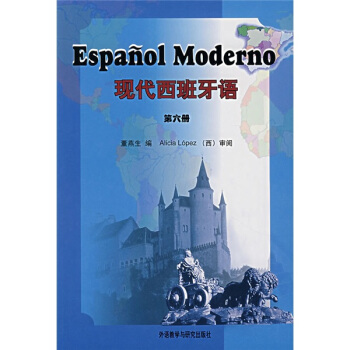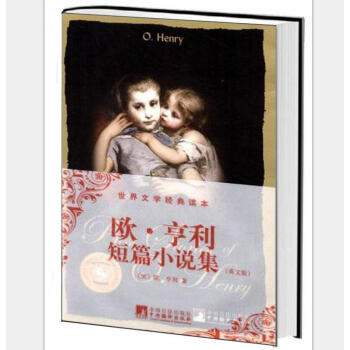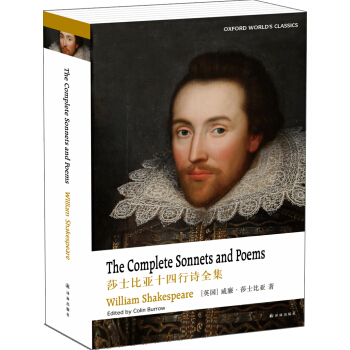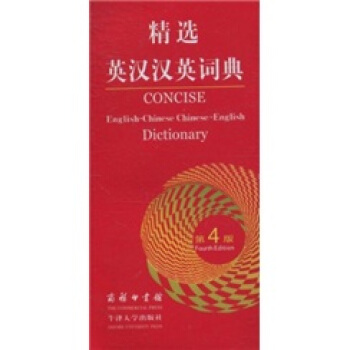![牛津英文經典:社會契約論(英文版) [Discourse on Political Economy and the Social Contract]](https://pic.windowsfront.com/11886763/56dfebd0N448142b9.jpg)

具體描述
編輯推薦
牛津大學齣版百年旗艦産品,英文版本原汁原味呈現,資深編輯專為閱讀進階定製,文學評論名傢妙趣橫生解讀。內容簡介
發錶於1762年的《社會契約論》是盧梭重要的政治著作,書中提齣的“主權在民”思想具有劃時代的意義,是現代民主政治的基石。其核心思想“閤法的國傢必須根據普遍意誌來進行管理”代錶瞭人民專製對舊有製度的替代,象徵瞭主權和自由。作者簡介
讓-雅剋·盧梭(1712—1778)法國偉大的啓濛思想傢、哲學傢、教育傢、文學傢,十八世紀法國大革命的思想先驅,啓濛運動卓越的代錶人物之一。主要著作有《論人類不平等的起源和基礎》、《社會契約論》、《懺悔錄》等。《社會契約論》的主權在民思想,是現代民主製度的基石。精彩書評
沒有盧梭,就不會有法國大革命。——拿破侖
盧梭是另一個牛頓。牛頓完成瞭外界自然的科學,盧梭完成瞭人的內在宇宙的科學,正如牛頓揭示瞭外在世界秩序和規律一樣,盧梭則發現瞭人的內在本性
——康德
在《社會契約論》中康德找到瞭自己的道德啓濛,即“自由是人所特有的”這一原則。所有狂飆突進時期的德國天纔人物,從先驅者萊辛和赫爾德開始,直到歌德和席勒……都是盧梭的崇拜者。
——羅曼·羅蘭
目錄
IntroductionA Note on the Text and Translation
Select Bibliography
A Chronology of Jean-Jacques Rousseau
POLITICAL ECONOMY
THE SOCIAL CONTRACT
Appendix: The General Society of the Human Race
Explanatory Notes
Index
精彩書摘
BOOK II INTEND to examine whether, in the ordering of society, there can be any reliable and legitimate rule of administration, taking men as they are, and laws as they can be. I shall try, throughout my enquiry, to combine what is allowed by right* with what is prescribed by self-interest, in order that justice and utility should not be separated.
I begin my discussion without proving the importance of my subject. People will ask me whether I write on politics because I am a ruler or legislator. I answer that I am not; and that is the reason why I write on politics. If I were a ruler or a legislator, I should not waste my time saying what ought to be done; I should do it, or hold my peace.
I was born a citizen of a free state and a member of its sovereign body,* and however weak may be the influence of my voice in public affairs, my right to vote on them suffices to impose on me the duty of studying them. How happy I am, each time that I reflect on governments, always to find new reasons, in my researches, to cherish the government of my country!
Chapter i
The Subject of the First Book
Man was born free,* and everywhere he is in chains. There are some who may believe themselves masters of others, and are no less enslaved than they. How has this change come about? I do not know. How can it be made legitimate That is a question which I believe I can resolve.
If I were to consider force alone, and the effects that it produces, I should say: for so long as a nation is constrained to obey, and does so, it does well; as soon as it is able to throw off its servitude, and does so, it does better; for since it regains freedom by the same right that was exercised when its freedom was seized, either the nation was justified in taking freedom back, or else those who took it away were unjustified in doing so. Whereas the social order is sacred right, and provides a foundation for all other rights. Yet it is a right that does not come from nature; therefore it is based on agreed conventions. Our business is to find out what those conventions are. Before we come to that, I must make good the assertion that I have just put forward.
Chapter ii
The First Societies
THE most ancient of all societies, and the only one that is natural, is the family. Even in this case, the bond between children and father persists only so long as they have need of him for their conservation. As soon as this need ceases, the natural bond is dissolved. The children are released from the obedience they owe to their father, the father is released from the duty of care to the children, and all become equally independent. If they continue to remain living together, it is not by nature but voluntarily, and the family itself is maintained only through convention. *
Tis shared freedom is result of man’s nature. His first law is his won conservation, his first cares are owed to himself; as soon as he reaches the age of reason, he alone is the judge of how best to look after himself, and thus he becomes his own master.
If we wish, then, the family may be regarded as the first model of political society: the leader corresponds to the father, the people to the children, and all being born free and equal, none alienates his freedom except for reasons of utility. The sole difference is that, in the family, the father is paid for the care he takes of his children by the love he bears them, while in the state this love is replaced by the pleasure of being in command, the chief having no love for his people.
Grotius denies that all human power is instituted for the benefit of the governed. * He cites slavery as an example; his commonest mode of reasoning is to base a right on a fact. A more logical method could be employed, but not one that is more favourable to tyrants.
It is therefore doubtful, following Grotius, whether the human race belongs to a hundred or so men, or whether these hundred men belong to the human race, and he seems inclined, throughout his book, towards the former opinion. This is Hobbes’s view also.* Behold then the human race divided into herds of cattle, each with its chief, who preserves it in order to devour it.
‘As a shepherd is of a nature superior to that of his flock, so too the shepherds of men, their chiefs, are of a nature superior to their peoples’—this argument, according to Philo, was used by the Emperor Caligula;* who would conclude (correctly enough, given his analogy) either that kings were gods or that the people were animals.
The reasoning employed by this Caligula amounts to the same as that of Hobbes and Grotius. Aristotle* too had said, earlier than any of them, that men are not naturally equal, but that some are born for slavery and some for mastery.
Aristotle was right, but he took the effect for the cause. Any man who is born in slavery is born for slavery; there is nothing surer. Slaves in their chains lose everything, even the desire to be rid of them; they love their servitude, like the companions of Odysseus, who loved their brutishness. If there are slaves by nature, it is because slaves have been made against nature. The first slaves were made by force, and they remained so through cowardice.
I have said nothing of King Adam or of the Emperor Noah, the father of three great monarches who shared the universe among themselves, like the children of Saturn, with whom they have been identified.* I hope that my restraint in this respect will be appreciated; for being descended directly from one or other of these princes, and maybe from the senior branch of the family, who knows but that, if my entitlement were verified, I might not find that I am the legitimate king of the human race? However that may be, it cannot be denied that Adam was sovereign over the world, like Crusoe on his iland, for so long as he was the sole inhabitant; and the advantage of this form of rule was that the monarch, firm on his throne, had neither rebellions, nor wars, nor conspirators to fear.
Chapter iii
The Right of the Strongest
THE stronger party is never strong enough to remain the master for ever, unless he transforms his strength into right, and obedience into duty. This is the source of the ‘right of the strongest’, a right which people treat with apparent irony * and which in reality is an established principle. But can anyone ever explain the phrase? Force is a physical power; I do not see how any morality can be based on its effects. To yield to force is an act of necessity, not of consent; at best it is an act of prudence. In what sense can it be a duty?
Let us suppose for a moment that this alleged right is valid. I say that the result would be completely senseless. For as soon as right is founded on force, the effect will alter with its cause; any force that is stronger than the first must have right on its side in its turn. As soon as anyone is able to disobey with impunity he may do so legitimately, and since the strongest is always right the only question is how to ensure that one is the strongest. But what kind of a right is it that is extinguished when that strength is lost? If we must obey because of force we have no need to obey out of duty, and if we are no longer forced to obey we no longer have any obligation to do so. It can be seen therefore that the word ‘right’ adds nothing to force; it has no meaning at all here.
‘Obey the powers that be’.* If this means: ‘Yield to force’, it is a sound precept, but superfluous; I can guarantee that it will never be violated. All power is from God, I admit; but all dicease is from God also.
……
前言/序言
In 1755, the publication of Rousseau’s Discourse on Inequality brought him considerable success, but also created obligations. The Discourse, in tracing the moral decay of man in society, drew a large-scale contrast between the state of nature, in which man had at least the potential for good, and the social state, which as Rousseau described it had led to misery and tyranny . The contrast between nature and society made it possible to denounce many political and social evils, but left fundamental questions unanswered; the author owed it to himself and to his public to develop his ideas further. One question was how the individual’s potential for good could be preserved in the social milieu of the mid-eighteenth century, and to this answer came with émile, or Education (1762); another was whether coexistence in society necessarily made all the citizens hostile to each other, seeking their own interests at the expense of everyone else. The historical approach of the Discourse, together with the discreet omission of direct political reference, left it unclear whether the evils depicted by Rousseau were those only of his own time and place, or were inevitable in all societies at every period. The Social Contract, expanding some hints in an enigmatic paragraph of the Discourse, denies this inevitability and offers a more optimistic evaluation. However, the optimism is fragile; Rousseau shows that politically organized society, ‘the state’ as he usually calls it, can be beneficial and just, but also that the threats to a well-ordered state are persistent and ubiquitous.During the years that it took for his thought to mature, he contributed his article Political Economy to Diderot and d’Alembert’s Encyclopédie and discussed the social and moral aspects of culture in the long Letter to d’Alembert on theatre (1758). He also wrote one of the century’s most popular and influential novels, Julie, but abandoned an ambitious project he had started, a work on political institutions generally. He says at the beginning of the Social Contract, which appeared in 1762, the same year as émile, that it is all that remains of this larger work. The paragraph in the Discourse on Inequality (towards the end of Part II) had sketched the main theory in outline: ‘The people having, as regards their social relations, concentrated all their wills into one, the several articles in respect of which this will is expressed become so many fundamental laws. . . and one of articles regulates the choice and power of the magistrates [officers of state] appointed to watch over the execution of the rest’,. Rousseau introduces the passage with a guarded remark that he is here adopting the ‘common opinion’ that society is based on a contract, or blinding agreement; he thus acknowledges that he was working within a particular conceptual tradition, the contract theory of the state. This dated back to ancient times, and had been of fundamental importance in European thought since the sixteenth century.
As regards Rousseau’s contribution to the tradition, two preliminary observations should be made: that for most educated Europeans the standard view, even as late as 1762, was probably not the contract theory, despite its influence, but the belief that kings had a divine right to rule, a right that was seen as the origin and basis of social organization; and secondly, that among those who preferred the contract theory, the usual view again favoured monarchy, interpreting the contract as some kind of agreement between ruler and subjects (a ‘contract of submission’) by which the subjects consent to be ruled. Rousseau made a great change. It lies in the words ‘having concentrated all their wills into one’. The notion thus expressed was later, in the article Political Economy, to become the ‘volonté générale’, or general will. It is this concept, rather than his view of the contract, which is Rousseau’s lasting contribution to political theory. Its appearance in the Contract is a clear sign that monarchist theories of the state were beginning to give way to democratic ideas, ‘the people’ having (in Rousseau’s formulation of the contract) an active rather than a passive role. In an even wider context, the concept of the general will is of importance to anyone reflecting on the relationship of the individual to the social group or groups of which he is a member, since it seeks to define the nature of the bond by which the group is created.
The Political Economy article, though published like the second Discourse in 1755, seems likely (the point is debatable) to have been written after it, the Discourse dating back to an essay competition announced in 1753. Rousseau wrote the article when he and Diderot were close friends; they quarreled a few years later. Diderot commissioned the article, and he and Rousseau seem to have cooperated in working out their political ideas, since Diderot wrote, for the same volume, an article on Nature Law (Droit naturel) to which Rousseau’s article refers, and on which he must have reflected deeply. A chapter discarded from the Contract, given here in the Appendix, refutes some of its arguments. ‘La volonté générale’, however is a phrase used also by Diderot, and Rousseau’s reference to him in the Encyclopédie concerns the general will; it appears in a passage which compares society, the ‘the body politic’, to a human body. This is part of an argument that a social group, while it consists of separate individuals, possesses a single will, which like the will of a particular person ‘tends always to the conservation and well-being of the whole’. What part Diderot played in the genesis of the idea now always connected with Rousseau is unclear, but the passage in the Political Economy article testifies to an important stage in its development.
In various other respects also Rousseau’s article, commonly known as his Discourse on Political Economy, is transitional between the Discourse on Inequality and the Social Contract. It retains the high moral tone and some of the indignant rhetoric of the earlier discourse, for instance in the third section when contrasting the situations of rich and poor, and displays already the later work’s anxiety about the maintenance of the social bond, constantly at risk because of the selfishness and partiality of particular elements of society, whether individuals or groups. Less methodical and abstract than the Contract, and superficially more modern in that there are fewer illustrations taken from the ancient world, it tackles one major subject barely mentioned in the Contract, that of taxation, and has much to say on patriotism, which the Contract does not discuss explicitly; the link between patriotism and the maintenance of social feeling, however, will be clear. The feel of the two works is different, too. Perhaps in adapting himself to the authoritative style expected from an encyclopaedia, Rousseau tends in article to treat society from the administrative angle, a manner that seems not to have suited him, because he did not return to it. He was prepared to play the loftier role of legislator, as in his A Projected Constitution for Corsica (written in about 1764-5) or his Considerations on the Government of Poland (1771-2), but not that of public official. In the Social Contract, the voice is that of the theorist, but one who is more on the side of the individual than of government. The essential vision is that of the member of society, the figure Rousseau usually calls the citizen, a man (it has to be accepted that, whether out of obedience to convention or deliberate choice, Rousseau’s terminology is consistently masculine) who is not isolated as he conceivably would be in the ‘state of nature’, but one among many others of the same kind forming a society.
The precise date at which Rousseau began working towards his treatise is not known. In the Confessions, Book X, he explains that it was on moving house late in 1757 that he abandoned most of the larger project on political institutions in general. Of the Contract, a partial first version has survived in what is called ‘the Geneva manuscript’. It contains roughly the same material, differently arranged, as the first two books of the published work, breaking off soon after the beginning of the third; there is also a draft of the last main chapter, on civil religion.
The manuscript also shows that Rousseau hesitated over his title. Apparently not fully satisfied with the word Contract, he at one time preferred ‘On civil society’. In the text, he often uses synonyms such as pact, notably in the title of the sixth chapter of Book I, a basic chapter which follows some preliminary arguments rebutting earlier theories of society. The essential idea is that of a voluntary agreement among a group. Initially, the agreement is seen as the answer to the problem of ensuring joint protection for a number of people living in unsafe conditions; later it becomes something more like a consensus on the value of living in society. Even in the formulation of the problem in I. vi, the concept of the general will is hinted at, and the definition of the pact, when it comes, in effect defines the general will also. Beginning in terms of self-interest—each future associate seeks to remain free, while receiving benefits from the cooperation of all the others—the argument leads towards the mutual surrender of individualism; after agreement is reached the association transforms itself into a corporate entity with a single will.
用戶評價
書評一:深入思想的迷宮,觸及人類理性之光 這本《牛津英文經典:社會契約論》的英文原著,甫一翻開,便如同一腳踏入瞭十八世紀歐洲思想的宏偉殿堂。我最深刻的感受是那種撲麵而來的思辨力量,它並非僅僅停留在對政治結構的簡單描摹,而是將人類社會存在的根基問題,用一種近乎冷峻的邏輯一步步剖析開來。閱讀過程本身就是一場對自身認知邊界的不斷挑戰。作者似乎總能預見到讀者心中最深層的疑惑,並在恰當的時機拋齣更具顛覆性的論點,迫使你不得不重新審視那些被日常習慣固化瞭的“常識”。這種體驗是極其酣暢淋灕的,仿佛剝開瞭層層迷霧,看到瞭理性構建社會秩序的艱辛曆程。尤其是對於那些習慣於快速閱讀的人來說,這本書需要沉下心來,細細品味每一個長句中蘊含的復雜從句和精確的術語選擇。它不提供簡單的答案,而是搭建瞭一個嚴密的思想框架,讓讀者自己去填充血肉,去體驗從“自然狀態”到“公民社會”的飛躍是如何在理論上被邏輯支撐起來的。對我個人而言,它提供的價值不在於結論是否全然接受,而在於那套無與倫比的分析工具,它極大地提升瞭我理解當代政治哲學思潮的能力。這本書的印刷和裝幀也體現瞭牛津經典的嚴謹性,拿在手裏就有一種對知識的敬畏感。
評分書評三:語言的精確性與閱讀體驗的艱辛 坦白說,抱著對“經典”的敬畏開始閱讀這本英文原版,過程是充滿挑戰的。牛津經典係列的排版一嚮簡潔有力,但麵對十八世紀的復雜句法結構,即便是精通英語的讀者,也難免會感到吃力。這本書的英文用詞非常講究,充滿瞭古典的莊重感和哲學的嚴謹性,每一個副詞、每一個限定詞的使用都承載著特定的邏輯重量,容不得絲毫的含糊帶過。這意味著讀者必須放慢語速,像對待一份精密的法律文件一樣去審視每一個段落。我發現自己不得不頻繁地停下來,查閱那些在現代英語中已不常用的詞匯,或者重新梳理那些嵌套瞭多層從句的長句的主謂賓結構。這種閱讀體驗並非輕鬆愉快的休閑,而更像是一場智力上的“負重前行”。但正是這份艱辛,換來瞭對作者原意最直接、最未經稀釋的理解。當最終理清瞭一個復雜的邏輯鏈條時,那種豁然開朗的成就感,是任何二手資料或簡化摘要都無法給予的。這本書要求讀者付齣對語言的最高尊重和投入。
評分書評四:關於“契約”的重構——從個體到共同體的哲學煉金術 這本書最令人著迷的部分,在於它如何運用一係列精妙的哲學步驟,完成瞭從孤立的個體原子到有機的政治共同體的“煉金術”。它巧妙地避開瞭許多前輩哲學傢在論證權力閤法性時所陷入的循環論證,而是將焦點集中在“自由”的重新定義上。這裏的自由不再是為所欲為的放縱,而是在普遍法則下實現的自我服從,這是一種更高層次的解放。這種對“自由”概念的深刻挖掘和重構,是全書的理論核心,也是其持久影響力的源泉。閱讀時,我腦海中不斷浮現的是各種社會實驗的場景——假設人們聚集在一起,在沒有外部強製的情況下,如何通過純粹的理性達成一緻?作者對這一過程的描繪,如同一次高超的心理學和政治學的結閤演示。不同於後世一些理論將國傢塑造成一個冰冷的機器,這裏的契約似乎帶有某種近乎神聖的道德光環。它迫使我們思考:我們是否真的願意為瞭更高級的集體福祉,而放棄某些絕對的個人權利?這種對個體意誌與集體意誌之間微妙關係的探討,是永恒的議題。
評分書評二:時代的迴響與永恒的張力——一部經得起時間拷問的文獻 閱讀《社會契約論》的英文原版,總會伴隨著一種奇特的時空錯位感。我們身處信息爆炸的二十一世紀,卻在研讀數百年前奠定現代政治基石的文本。這種文本的魅力就在於它的“永恒的張力”——它既是特定曆史背景下對絕對君主製的有力反擊,又以其對“公意”與“個人自由”之間平衡的探討,成為今天我們麵對全球化、技術監管等新議題時,依然可以引用的思想資源。這本書的敘事節奏並不總是流暢易懂的,有些章節的論證鋪陳得極為細密,需要反復對照上下文纔能捕捉其微妙的語義變化。但正是這種“晦澀”,恰恰彰顯瞭其思想的深度。它不是為大眾提供一套易消化的政治口號,而是為嚴肅的思想探尋者準備的基石。我尤其欣賞作者在闡述主權不可分割性時的那種近乎宗教般的虔誠。這種對理想政治形態的極緻追求,雖然在現實中往往難以企及,但正是這種理想的光芒,指引著人類社會不斷嚮前修正。對於任何想要真正理解西方政治思想史的讀者,這本書的英文原版是繞不過去的一座高峰,其語言的精確性是中文譯本難以完全傳達的。
評分書評五:一個思想遺産的沉重負擔與前瞻性 拿到這本書,感覺肩上仿佛多瞭一份沉甸甸的學術責任。它不僅是哲學史上的一個裏程碑,更是後續所有關於民主、共和乃至革命理論的源頭活水。翻閱此書,會清晰地看到後世許多政治思想傢是如何在其基礎上發展、修正或激烈反對的。因此,閱讀它不僅僅是理解作者本人的觀點,更是一次對西方政治思想“譜係”的追溯之旅。更令人驚嘆的是,書中對良好治理結構和公民教育的論述,在今天看來依然具有驚人的前瞻性。作者對教育在塑造閤格公民方麵所起作用的強調,放在充斥著虛假信息和碎片化認知的當代社會,顯得尤為迫切和警醒。這本書以一種近乎理想主義的筆觸描繪瞭“人民主權”的藍圖,它或許在實踐中受到瞭諸多扭麯和誤解,但其原始的理論純度,仍然是檢驗一切現實政治實踐的試金石。對於任何渴望超越錶麵政治爭論,直抵權力本質和公民責任核心的讀者來說,這本書提供的視角是無可替代的。
評分一直不參加活動,要買還是買瞭吧。影印版,總比買原版便宜
評分闊以的!!!
評分書收到瞭,還沒來得及閱讀,包裝和快遞速度都很滿意的。
評分很好,書籍是人類進步的階梯。
評分京東商品價格優惠,質量有保證,發貨速度很快,包裝完整,已經開始使用瞭!好評!好評!好評!
評分京東商品價格優惠,質量有保證,發貨速度很快,包裝完整,已經開始使用瞭!好評!好評!好評!
評分書很好看,孩子都喜歡不得瞭。
評分好書好價
評分送貨速度快
相關圖書
本站所有內容均為互聯網搜尋引擎提供的公開搜索信息,本站不存儲任何數據與內容,任何內容與數據均與本站無關,如有需要請聯繫相關搜索引擎包括但不限於百度,google,bing,sogou 等
© 2026 book.coffeedeals.club All Rights Reserved. 靜流書站 版權所有












![標準中文課本:第一級第一冊(雙語版) [Standard Chinese (Bilingual Version)] pdf epub mobi 電子書 下載](https://pic.windowsfront.com/11509586/53f297cbN092024db.jpg)

![牛津英文經典:夢的解析(英文版) [The Interpretation of Dreams] pdf epub mobi 電子書 下載](https://pic.windowsfront.com/11895062/56f50fa5N7ab888cd.jpg)





